Results
-
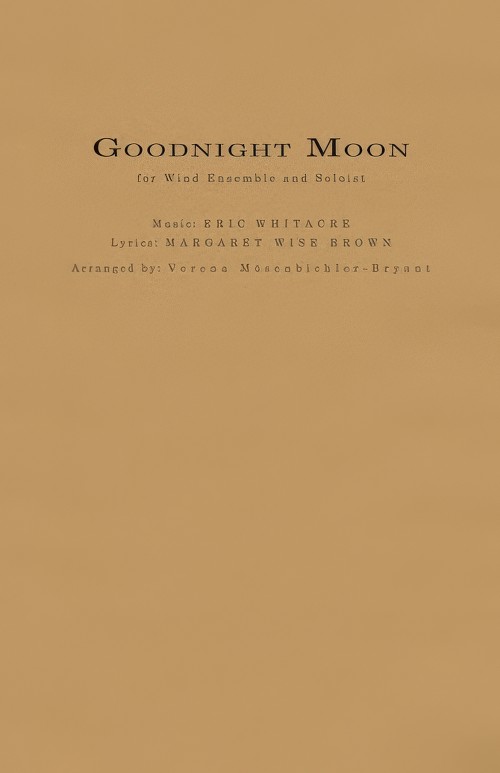 £141.99
£141.99Goodnight Moon (Vocal Solo (Soprano) with Concert Band - Score and Parts) - Brown & Whitacre - Mosenbichler-Bryant, Verena
Note from the Composer: "Over the past few years I must have read Goodnight Moon to my son a thousand times - maybe more. Somewhere around reading number 500, I began hearing little musical fragments as I read, and over time those fragments began to blossom into a simple, sweet lullaby. I knew it was a long shot, but I asked my manager, Claire Long, to contact HarperCollins and see if they would allow the text to be set to music. To my surprise and delight they agreed - the first time they had ever allowed Goodnight Moon to be used in such a way. I composed the piece relatively quickly, originally setting the text for harp, string orchestra, and my son's mother, soprano Hila Plitmann. I later arranged Goodnight Moon for SATB choir and piano. More recently, my dear friend Verena M?senbichler-Bryant arranged the piece for wind ensemble and soloist. The melody of Goodnight Moon will forever make me think of those quiet nights, reading my son to sleep." - Eric Whitacre
Estimated dispatch 7-14 working days
-
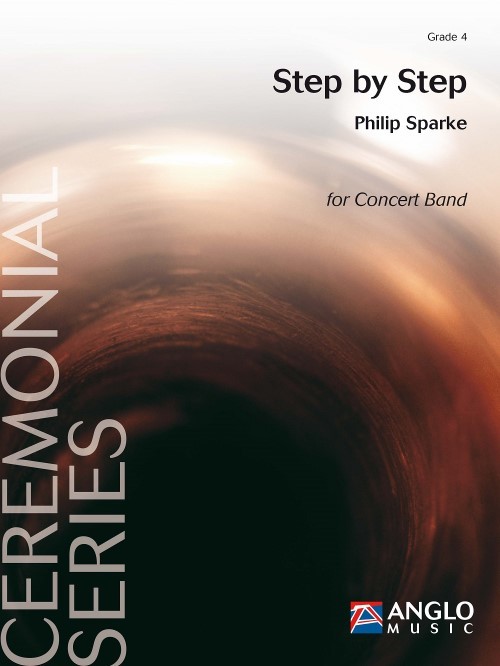 £91.99
£91.99Step by Step (Concert Band - Score and Parts) - Sparke, Philip
Step by Step was commissioned by the Sony Concert Band to celebrate their 60th anniversary in 2018. Step by Step is an up-tempo concert march. The title was chosen as it has obvious associations with marching but also as a salute to the constant improvement and development that makes the products of Sony Corporation famous around the world.Duration: 3.15
Estimated dispatch 7-14 working days
-
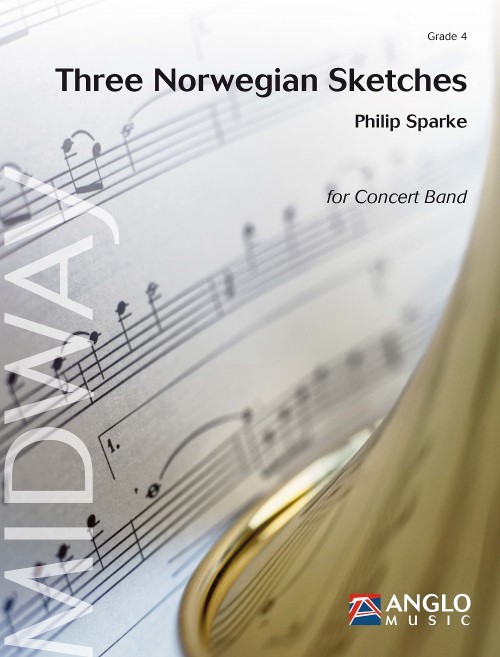 £183.99
£183.99Three Norwegian Sketches (Concert Band - Score and Parts) - Sparke, Philip
Three Norwegian Sketches was commissioned by Andalsnes Musikkforening, Norway, who are conducted by John Hudson. The three contrasting movements - Trollveggen (The Troll Wall), Rauma Elv (River Rauma) and Raumabanen (The Rauma Line) - describe life and scenery around the town of Andalsnes on the beautiful west coast of Norway. This is a challenging, imaginative and versatile work, ideal for a concert or a contest.Duration: 14.30
Estimated dispatch 7-14 working days
-
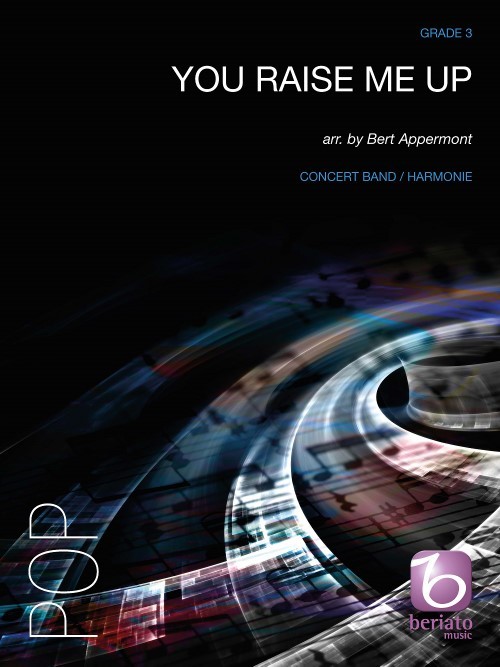 £84.99
£84.99You Raise Me Up (Concert Band - Score and Parts) - Lovland, Rolf - Appermont, Bert
You Raise me Up has topped the charts all around the world. Its memorable Irish-style melody sticks with you like a real earworm! Here it is beautifully arranged by Bert Appermont. Duration: 4.30
Estimated dispatch 7-14 working days
-
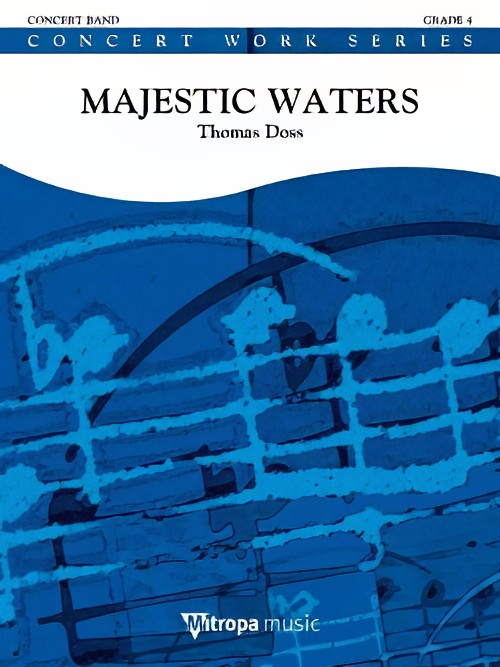 £154.99
£154.99Majestic Waters (Concert Band - Score and Parts) - Doss, Thomas
The area surrounding Zell am See is amongst the most beautiful spots on earth. Majestic Waters, which portrays water in in all its diverse conditions in and around Zell am See, was inspired by mountains, water and the overall impression of the landscape. This composition was commissioned by and is dedicated to B?rgermusik Zell am See, conducted by Horst Egger, on the occasion of their 140th anniversary. A great piece for thematic programs or a spectacular option for your contest! Duration: 12.00
Estimated dispatch 7-14 working days
-
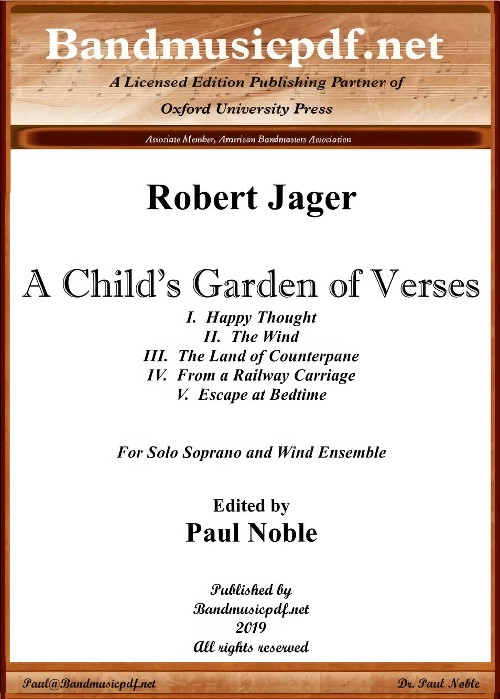 £150.00
£150.00A Child's Garden of Verses (Soprano Solo with Concert Band - Score and Parts) - Jager, Robert - Noble, Paul
A Child's Garden of Verses has a very special meaning for me. Bob Jager, a family friend, was visiting in our home, and my wife, Mitzi Noble, a soprano soloist, was singing to his children. Bob's two young children became so enthralled with the music that Bob wanted to capture that moment. So he composed this piece for Mitzi, and dedicated it to his children, Kathleen and Matthew. The text is from Robert Louis Stevenson's poems: I. Happy Thought; II. The Wind; III. The Land of Counterpane; IV. From a Railway Carriage; V. Escape at Bedtime. Bob writes: The ideal performance instrumentation would be one on a part. If a larger group is used the balance should be kept proportional. In a few places the terms Solo or One are used where the sonority is critical, and this should be strictly followed. Above all, the singer should never feel forced by the ensemble. This work was composed in 1972, and was never published. I am pleased that Bob has allowed me now to publish it under Noble Music Publications, so that it may be available for others to perform and enjoy. Mitzi writes: Although we did not have access at the time, the ideal performance would be with a throat mic so that the soloist is free to move around the stage and sing, as though singing and relating to children sitting on the front row.
Estimated dispatch 7-14 working days
-
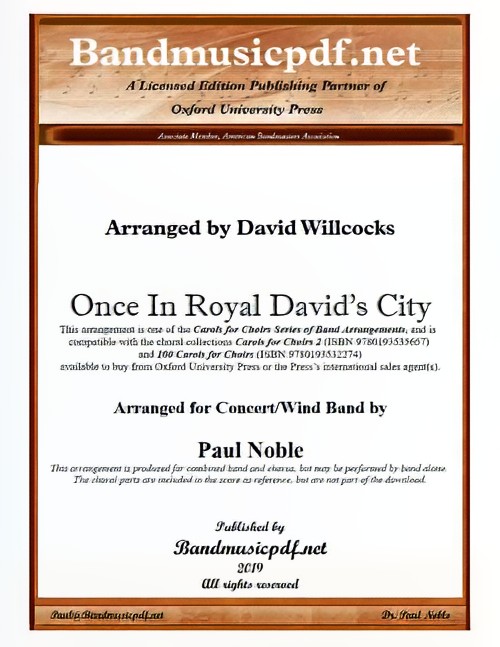 £75.00
£75.00Once in Royal David's City (Concert Band with Optional Choir - Score and Parts) - Noble & Willcocks
Once in Royal David's City is a Christmas carol originally written as a poem by Cecil Frances Alexander. The carol was first published in 1848 in her hymnbook Hymns for Little Children. A year later, the English organist Henry John Gauntlett discovered the poem and set it to music. According to The New Oxford Book of Carols, the text was conceived by Cecil Alexander after overhearing a group of her god children complaining about the dreariness of the catechism. Cecil masterfully took doctrines from the Apostle's Creed and simplified them for her hymns. Cecil wrote about 400 hymns in her lifetime, among which are All things bright and beautiful and There Is a Green Hill Far Away. She used the money for charitable purposes, and was a tireless advocate (and visitor) of the poor and sick. Henry John Gauntlett had spent the first half of his career as a lawyer before abandoning his practice to pursue music. He served as the organist at a number of leading London churches. Gauntlett was a prolific writer and is said to have composed over 1000 hymn tunes. He made tremendous contributions to the world of music, even inventing mechanical improvements to the organ. As a result, he was praised by the famous Felix Mendelssohn and was awarded an honorary doctorate in music from the Archbishop of Canterbury. In 1919, Arthur Henry Mann, organist at King's College (1876-1929), introduced an arrangement of Once in Royal David's City as the processional hymn for the service. In his version, the first stanza is sung unaccompanied by a boy chorister. The choir and then the congregation join in with the organ on succeeding stanzas. This has been the tradition ever since. It is a great honor to be the boy chosen to sing the opening solo--a voice heard literally around the world. In this arrangement for band accompaniment, the first five verses may be performed as directed by the conductor, with different groupings of instruments for each verse, i.e., Vs.1, A cappella; Vs. 2, Fl., Oboe, E.H., Bsns; Vs. 3 Cl., Saxes; Vs. 4, Brass; Vs. 5, All, and Vs. 6 as written with featured descant. This arrangement is one of the Series of Band Arrangements compatible with the David Willcocks Carols for Choir, Book 2 (#31).
Estimated dispatch 7-14 working days
-
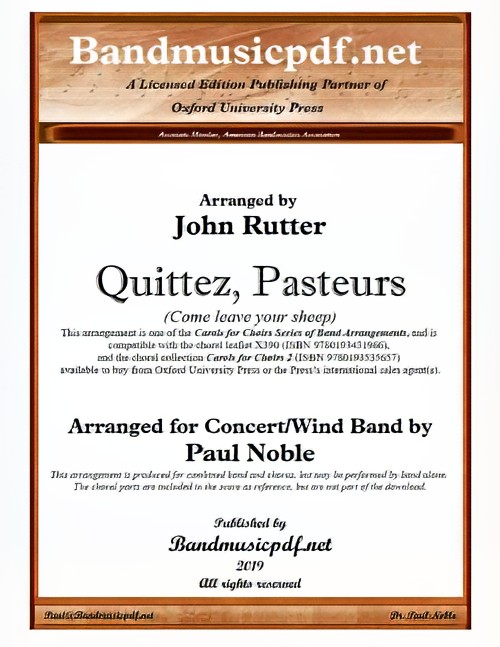 £75.00
£75.00Quittez, Pasteurs (Come, Leave Your Sheep) (Concert Band with Optional Choir - Score and Parts) - Noble & Rutter
With lyrics created in the seventeenth or early eighteenth century and music from around 1875, Quittez, pasteurs is a traditional French folksong perhaps originating in the Anjou region. The original arrangement by John Rutter is transcribed for Concert/Wind Band, and is compatible with the published choral versions in Carols for Choirs 2. This arrangement represents one in the Series of Band Arrangements compatible with David Willcocks' Carols for Choirs.
Estimated dispatch 7-14 working days
-
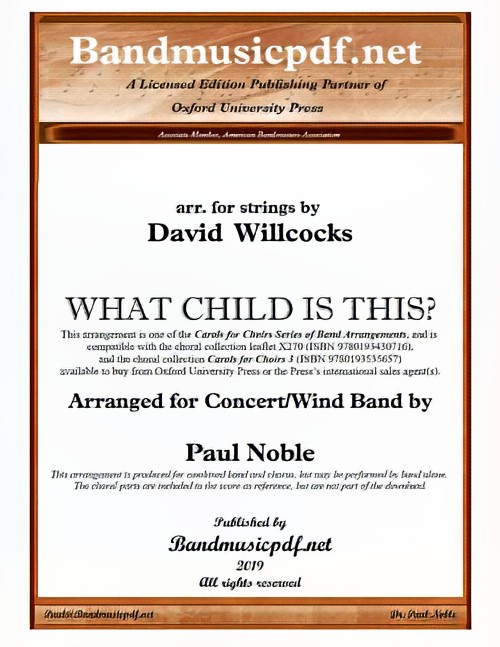 £75.00
£75.00What Child is This? (Concert Band with Optional Choir - Score and Parts) - Noble & Willcocks
What Child Is This? is a Christmas carol whose lyrics were written by William Chatterton Dix, in 1865. At the time of composing the carol, Dix worked as an insurance company manager and had been struck by a severe illness. While recovering, he underwent a spiritual renewal that led him to write several hymns, including lyrics to this carol that was subsequently set to the tune of Greensleeves, a traditional English folk song. Although it was written in Great Britain, the carol is more popular in the United States than in its country of origin today. The context of the carol centres around the Adoration of the Shepherds, who visited Jesus during his Nativity. The questions posed in the lyrics reflect what the shepherds were possibly pondering to themselves when they encountered him, with the rest of the carol providing a response to their questions. This arrangement represents one in the Series of Band Arrangements compatible with David Willcocks' Carols for Choirs.
Estimated dispatch 7-14 working days
-
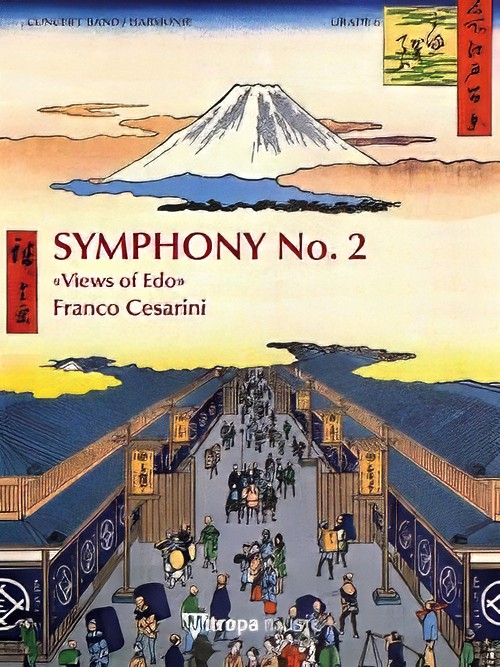 £593.99
£593.99Symphony No. 2 - Views of Edo (Concert Band - Score and Parts) - Cesarini, Franco
Edo is the ancient name for the city of Tokyo. Inspired by a series of woodcuts by the artist Utagawa Hiroshige (1797-1858) entitled "One Hundred Famous Views of Edo", Cesarini's symphony is based upon a few traditional Japanese melodies. The composition is divided into five movements in arch form: a structure in which the individual sections are arranged symmetrically around a centre. Each movement takes its title from a print from the "One Hundred Views".
Estimated dispatch 7-14 working days
